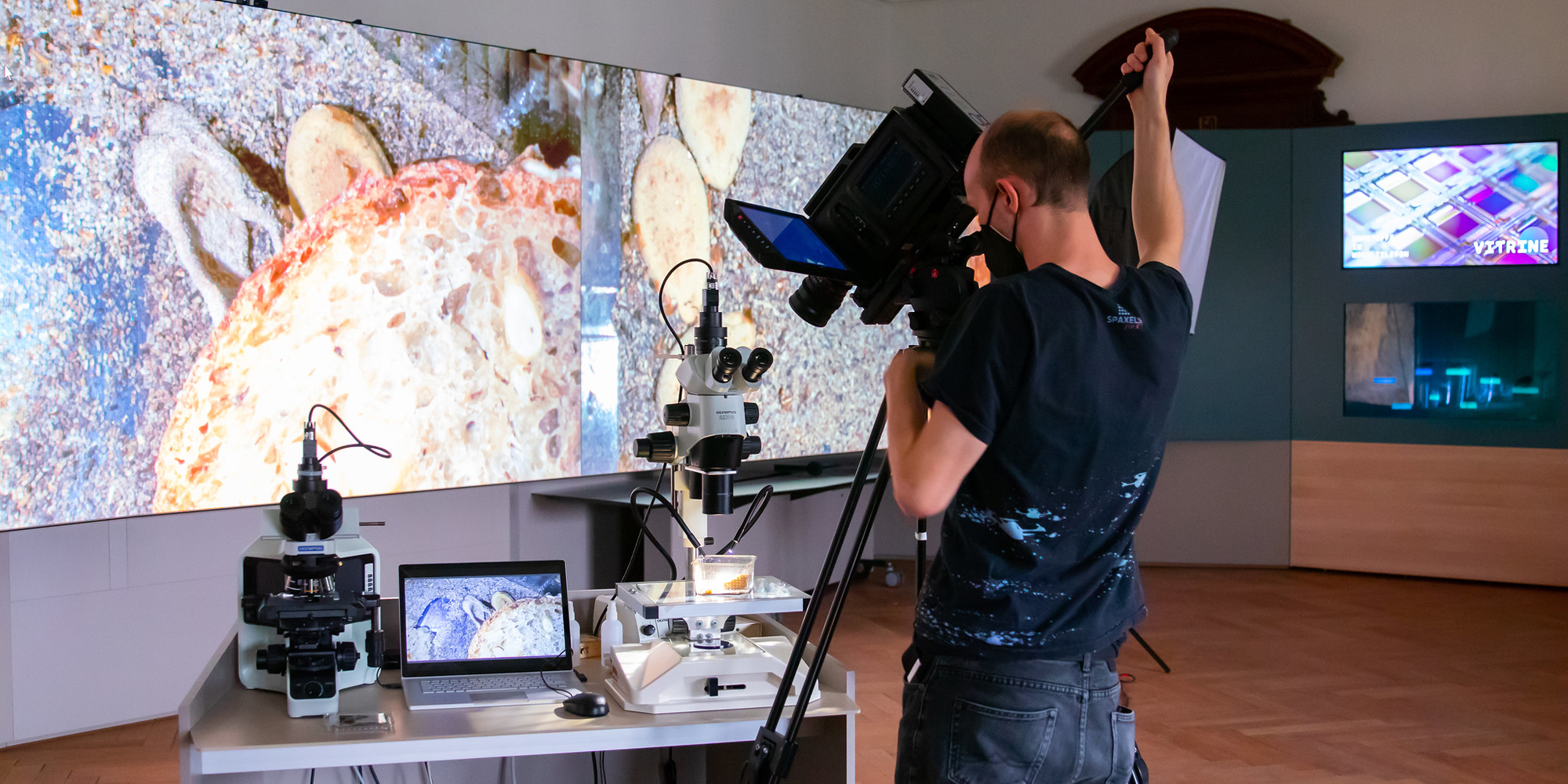Ars Electronica Home Delivery – Deck 50
Ars Electronica Blog – Deck 50
Ars Electronica Blog
(Linz, 29.9.2021) With Deck 50, the Natural History Museum Vienna will open a new type of experimental space tomorrow, Thursday, September 30, 2021, where non-professionals of all ages can experience the fascination of science. From now on, researchers and visitors will be able to meet, exchange ideas and learn from each other. Scientific research not as inaccessible machinations in the ivory tower, but as open reflection on the world we live in, driven by curiosity and passion – with the new Deck 50, the NHM Vienna and the Ars Electronica Futurelab demonstrate how contemporary science communication works.
Hands on – visitors become Citizen Scientists.
How environmentally damaging is the production and disposal of our smartphones? What is conscious consumption and can it really help the depressed stocks of fish and seafood to recover? Is the coexistence of humans and wolves still possible in 21st century Central Europe?
These are very different and very current topics that motivate visitors to Deck 50 to actively explore and experiment. Their results, in turn, are evaluated by scientists and flow into ongoing environmental and socially relevant research projects. Thus, mere museum visitors become “Citizen Scientists” who participate in scientific projects as interested laypersons. Research in Deck 50 takes place in a modern and inspiring setting that includes a publicly accessible laboratory area, workshop boxes with microscopes, a flexible meeting zone with interactive research stations, an eleven-meter-long projection screen, and an inviting grandstand that can be used as a stage for presentations or as a platform for discussions.
Ars Electronica Home Delivery – the new Deck 50 at NHM Vienna
1.10.2021 / 18:00
Ars Electronica Home Delivery on Oct. 1, 2021 is all about Deck 50, Citizen Science and the importance of innovative methods in science communication. With Katrin Vohland, (Director General of the Natural History Museum Vienna), Iris Ott (Department Head of Science Communication and Head of the Deck 50 project at the Natural History Museum), research assistants Karina Grömer, Vera Hammer, Andreas Kroh, Frank Zachos (all Natural History Museum), as well as Jakob Illera, (exhibition architect from INSEQ Design), and Marianne Eisl, Stefan Mittlböck-Jungwirth-Fohringer and Johannes Pöll (all Ars Electronica Futurelab). The stream will begin at 18:00.
Natural History Museum Vienna
With more than 30 million collection objects, the Natural History Museum Vienna (NHMW) is one of the most important natural history museums in the world. In addition to an impressive display collection and exhibitions on socially relevant topics, the museum hosts current basic research in the various fields of earth, biological and human sciences. This makes the museum an important competence center for public issues and one of the largest non-university research institutions in Austria.
Ars Electronica Futurelab
The Ars Electronica Futurelab was initiated in 1996 as both a studio and a laboratory. Since then, it’s been Ars Electronica’s artistic-scientific think tank, research and development engine. Here, the team develops innovative prototypical sketches of the future that serve both as a basis for discussion and as an invitation to participate in a broad discourse on issues relevant to the future. The Ars Electronica Futurelab collaborates with partners from industry, the creative sector, the arts and academia and education all over the world.
Photo:
Deck 50 / Foto: Birgit Cakir / Printversion
Photo:
Deck 50 / Foto: Birgit Cakir / Printversion
Photo:
Deck 50 / Foto: Birgit Cakir / Printversion
